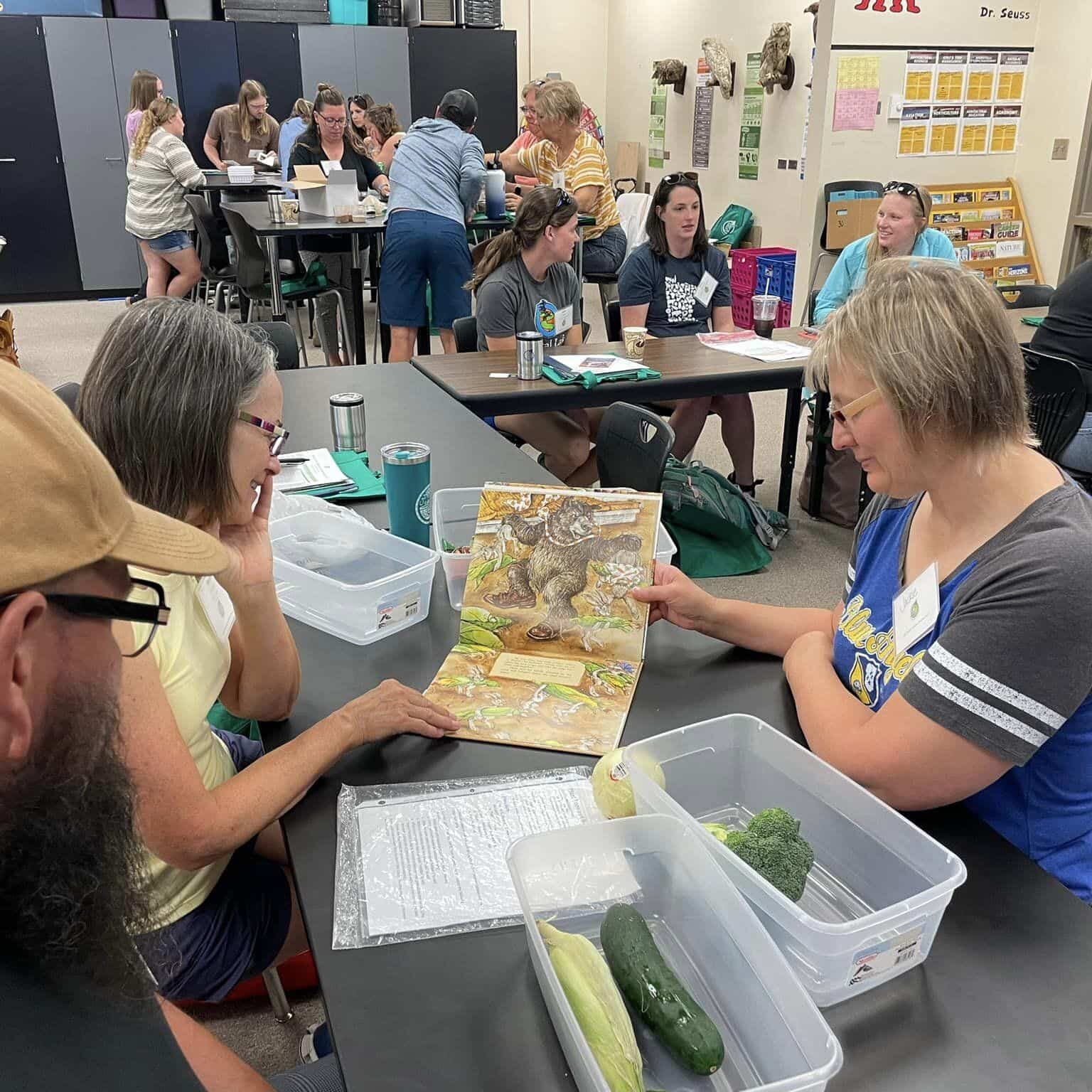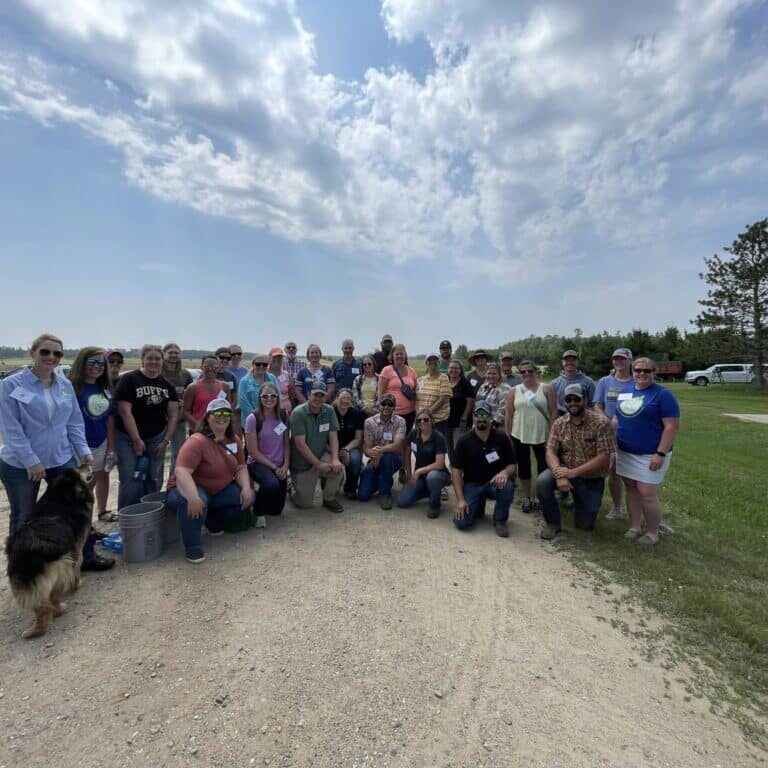Each summer, Minnesota Agriculture in the Classroom staff come together to plan out teacher tours throughout the state for educators and agribusiness professionals. There were four in-person teacher tours in 2023, one of which had a mystery theme. Read along as this high school educator talks about her experience from It’s a Mystery Tour in northern Minnesota.

I teach high school, eighth grade through 12th grade, agriculture classes, in Menahga, about ten miles south of here. I went on the Park Rapids [teacher] tour last year and had been to some of the tour stops, some of the places I had no idea existed. But it was really cool, because even the dairy farm I had been to multiple times, I had had his kids as my students, but still I learned so much there that day, from a different side of things. It was cool.
Speaking to My Students About What is Agriculture?
I just finished my tenth year teaching in the Menahga School District, same content area, and even in those ten years I have seen a shift, that there is less of an understanding (of agriculture), more of a gap. I am lucky enough, every year I get all of the eighth grade, just for a quarter, just to explore ag-related careers and content, and I always start with what they think agriculture is, (they have an assignment) they have to ask adults in their lives what they think agriculture is. The answer comes back, “Farming,” which it absolutely is, and we wouldn’t have any of the other opportunities if we didn’t have that, but at the end of the quarter, we talk about what actually exists, what are the opportunities (careers in agriculture).

The Decrease in Farming Families
My first few years, probably about a third of my students, their parents or grandparents had a farm. Now there are one or two kids in a class of 25-28 students, whose parents or grandparents have a farm. Just in that short period of time. Some of the smaller family farms aren’t farming any more. We have some pretty big families in our district, too. When I started I was getting the younger kids in those families, and now I am getting a lot of the oldest kids in some families, so their parents… the change in generations farming is not in the family any more.
Educating About The Many Careers in Agriculture
I start off with my eighth graders and I ask them, who thinks they are going to work in agriculture in the future? A couple hands. One quarter this year there were about six kids out of 22 students. Then, at the end of the quarter, after we had talked about the career opportunities and all of the jobs connected to agriculture, I asked again, how many of your career plans—how many of you are going to be working in agriculture? And then it’s probably the majority of the class. Now that they see those connections. Engineering? I might be in it. Marketing? I could be working in agriculture, yes I could. It’s not just on the farm. It’s kind of fun to see that.

Using the AgMag and MAITC Lessons with My FFA Students
One of our Menahga families was featured in the ag mag last year or the year before, so I definitely use that. The matrix (the searchable database of Ag In The Classroom lessons) is helpful. I use some of their lessons. I also advise FFA, and I will point my kids that way if we want to go work with an elementary class. The kids find that those lessons are really well put together, and it can be kind of intimidating to teach for the first time. We work at the county fairs, too, and we definitely steal some of the activities and ideas to use there, in demonstrations and other things. It’s fun, because sometimes we are trying to target the kids—we are working during the kids' days at the fairs—but sometimes it’s the parents or the grandmas and grandpas who are really into what we are doing. They’ll say, I never thought it that way before, or that’s so different from what we learned when we were in school.
Students Teaching Students
I am going to have a new class this year where we will do even more of that, more regularly, where high school students teach the younger kids. In past years it has been FFA students who wanted to explore education or get some service learning opportunities that they would present to a class at our barnyard day.
We are trying to get that going to strengthen that connection with the younger kids and get them excited and recruit for ourselves.

Stories like these inspire us. They highlight just how important increasing agricultural literacy from kindergarten through twelfth grade truly is. The next generation is more removed from the farm than ever before. Through Minnesota Agriculture in the Classroom resources, we are increasing agricultural literacy and expanding the next generation’s desire to work in the agriculture industry.
Join us in making a difference.
